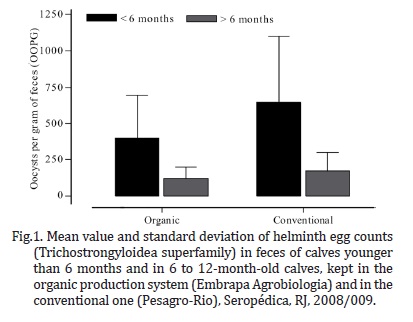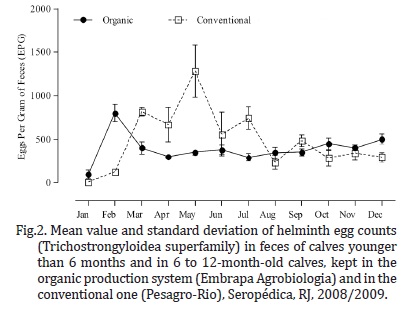Sustainable production is a principle in which we must meet the needs of the present without compromising the capacity of future generations. Despite the successful development of pesticides against endo and ectoparasites found in domestic ruminants, these parasites are still the major problem of the herbivore production system. The purpose of this study was to know the population of gastrintestinal parasites and their influence on weight gain of calves kept in organic and conventional grazing. Thus, organic and conventional calves were randomly selected in 2008 and 2009. The fecal egg count (FEC) indentified the following genders of helminths: Haemonchus, Trichostrongylus, Oesophagostomum, Cooperia, Strongyloides, Trichuris and oocysts of Eimeria. There was no significant difference (p>0.05) between FEC in organic and conventional animals. Calves younger than 6 months showed significant higher infection (p<0.05) than calves between 7 and 12 months of age. The weight gain observed during the study was of 327g/day and 280g/day for conventional and organic systems animals, respectively. Consequently, the combination of sustainable practices of grazing associated with the selective application of anthelmintics may be a feasible alternative for nematode control in a conventional system and in transition to an organic one.
Anthelmintics; eimeriosis; haemonchosis; sustainable production; cattle




